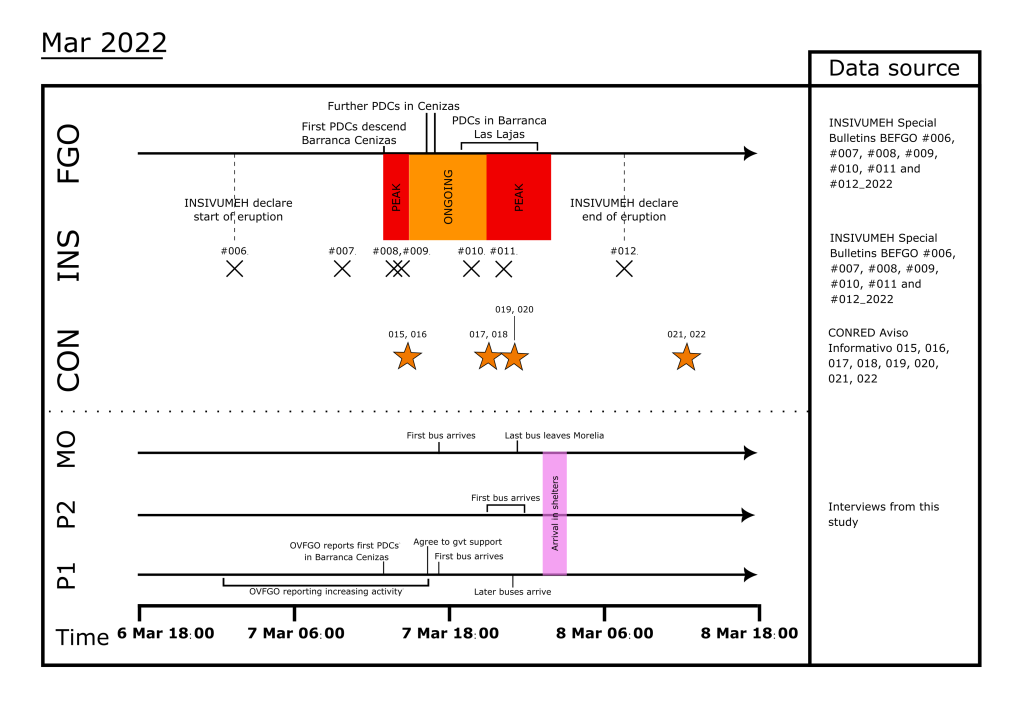Hello all,
As always, it’s been a while since I posted! I wanted to write a (very short) piece to commemorate the recent publication of our study on Fuego. The lead author is Dr. Beth Bartel, an exceptional researcher and friend whose path intersected with mine while living in Guatemala in 2021 – 22. Our study, “Children First: women’s perspectives on evacuation at Fuego volcano and implications for disaster risk reduction“, was published in Frontiers in Earth Science as part of a dedicated Research Topic, “Women in Science: Volcanology 2022“. (Eagle-eyed readers will note that the year is 2023, to which I’ll say that the best food is made in the slow cooker.)
Volcán de Fuego is a highly active volcano in Guatemala, the most populous country in Central America. A lot of people live on Fuego’s slopes, and when Fuego erupts, these people often face the difficult decision of whether to stay in their community or temporarily leave (evacuate). Beth and I spent a lot of time working with people in these communities – Beth for her PhD, I for the research project “Ixchel“. We are both interested in understanding more about the complexity of evacuation at Fuego, so we talked to many people about their experiences of living beside the volcano and responding to its eruptions. While we were in Guatemala, Fuego had a powerful explosive eruption (a “paroxysm”) on 7 March 2022. This eruption produced dangerous pyroclastic flows and caused people from three communities to leave their homes and seek shelter away from Fuego for several nights. When Beth and I next visited these communities (where we had been working prior to the eruption) and spoke to people about their experiences, we were directed to talk to women, who had performed many of the responsibilities and shouldered much of the burden of evacuating. We were curious to hear their perspectives of the evacuation process. Although there is a good amount of existing research on women’s experiences and perspectives of evacuation for other natural hazards (such as floods), we believed that women’s perspectives of evacuation during volcanic crisis had been studied less. We thought that we might able to contribute some knowledge to this less-studied area by conferring these women’s experiences as told in their own words, in their conversations with us. By writing the study, we hoped to communicate these women’s perspectives to a wider audience and start a conversation about gendered roles in evacuation during volcanic crisis. Voila!

I’m writing this post because I’m really, really proud of this study, and I think that if you are interested in active volcanoes and the people that live around them, you would enjoy reading it. It’s fully open-access (woop!) and written in a style that we hope is clear and accessible. I’ve included a link to the study via the title above, or you can access it here: https://www.frontiersin.org/articles/10.3389/feart.2023.1172867. Either way, if you choose to click through – thanks for your attention and happy reading!

